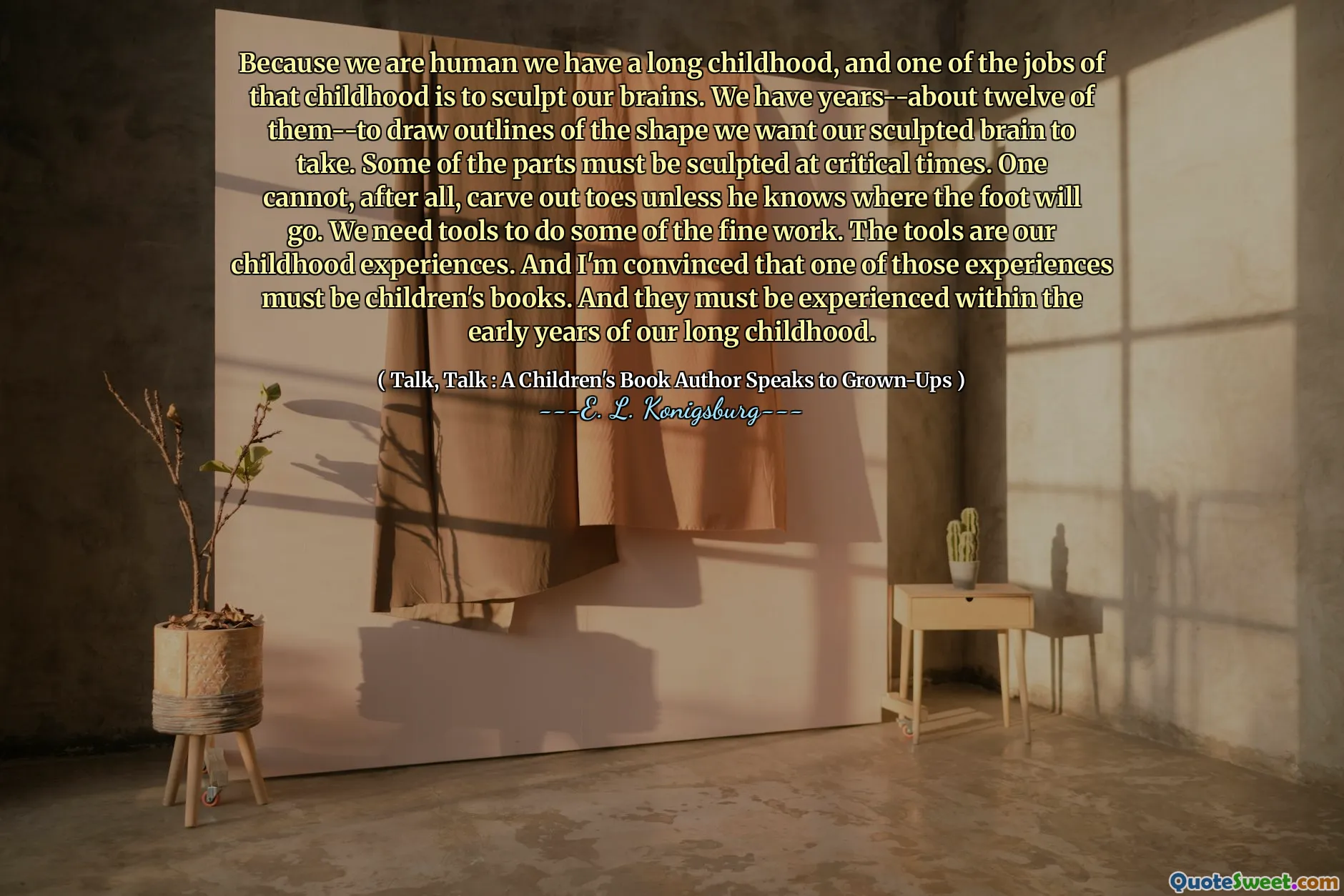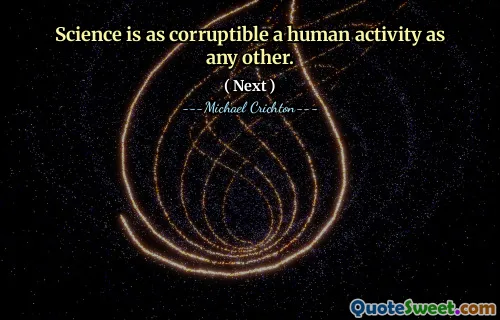
Because we are human we have a long childhood, and one of the jobs of that childhood is to sculpt our brains. We have years--about twelve of them--to draw outlines of the shape we want our sculpted brain to take. Some of the parts must be sculpted at critical times. One cannot, after all, carve out toes unless he knows where the foot will go. We need tools to do some of the fine work. The tools are our childhood experiences. And I'm convinced that one of those experiences must be children's books. And they must be experienced within the early years of our long childhood.
This quote beautifully emphasizes the crucial role early childhood plays in shaping our minds and personalities. It highlights that our brains are like sculptures in progress during this extended period of childhood, where each experience leaves an imprint that influences our development. The metaphor of sculpting underscores the importance of deliberate and meaningful interactions, especially during critical periods when specific brain parts are most receptive to influence. Children's books are presented as vital tools in this developmental process, serving as enriching experiences that introduce concepts, morals, and worlds beyond immediate reality. These stories can inspire imagination, empathy, and understanding, serving as foundational elements for moral and emotional growth. The metaphor suggests that the quality and nature of early experiences—whether through stories, relationships, or education—determine the mental landscape we carry into adulthood. It also implies that just as a sculptor must have the right tools and timing, caregivers and educators must provide appropriate, thoughtful stimuli at the right moments for optimal development. Recognizing this emphasizes the importance of nurturing environments equipped with books and stories, which can be subtle but powerful influencers of a person's lifelong capabilities and worldview. This perspective underscores our responsibility to curate early experiences carefully, knowing their long-lasting impact on shaping the human mind and heart.


